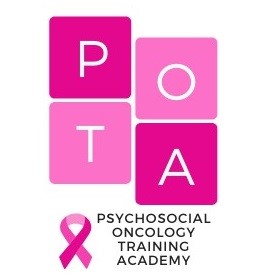SOM200 - POTA Live Workshop for Interprofessional Health Clinicians

POTA is the FIRST community-based interprofessional training initiative aimed to build community’s capacity to improve access and quality of psychosocial cancer care. POTA offers interactive workshops designed for mental health and primary care professionals serving patients in the Greater Birmingham area and beyond.
POTA SOM200 course offers 8 interactive modules and an open access resource platform to enhance clinical competency and referral networks that best support breast cancer survivors and their families. Participants can earn up to 16.0 CME/CE credits at the completion of the course.
Breast Cancer Survivor Informed Psychosocial Oncology Framework
Course Objectives:- Identify genetic, experiential, and psychosocial factors that shape the response of individuals to the diagnosis and treatment of breast cancer
- Summarize the unique coping challenges during the survivorship phase of breast cancer
- Develop therapeutic goals for psychosocial interventions during the breast cancer survivorship
Psychosocial Distress Screening and Management
Course Objectives:- Integrate guideline-driven approach to assess distress commonly experienced by breast cancer patients and co-survivors
- Develop strategies to incorporate distress screening and management into clinical practices that best suit your service
- Identify the community resources for distress management
Evidence-Based Psychosocial Interventions Series I: Depression, Anxiety, & PTSD in Breast Cancer
Course Objectives:- Identify the impact of breast cancer on patients coping with depression, anxiety and PTSD symptoms
- Assess nature and severity of depression, anxiety, and PTSD symptoms resulting from breast cancer
- Integrate evidence-based interventions to treat depression, anxiety, and PTSD in breast cancer patients and caregivers
Evidence-Based Psychosocial Interventions Series II: Insomnia, Fatigue, Pain in Breast Cancer
Course Objectives:- Examine management of insomnia, fatigue, and pain resulting from breast cancer treatments
- Identify tools available to assess cancer-related insomnia, fatigue, and pain
- Integrate evidence-based interventions to treat insomnia, fatigue, and pain in breast cancer patients
Sexuality, Body Image and Intimacy
Course Objectives:- Describe common concerns around sexuality, body image, and intimacy in breast cancer
- Apply evidence-based techniques to assess cancer-related sexual dysfunctions
- Integrate interdisciplinary strategies to enhance sexual and relational wellbeing across breast cancer journey
Culturally Sensitive Patient-Provider Communication
Course Objectives:- Define culturally sensitive patient-provider communication.
- Examine barriers to effective communication
- Discuss communication strategies to improve culturally sensitive patient-provider communication
Legacy Building, Grief, & Bereavement
Course Objectives:- Define five types of grief associated with breast cancer diagnosis and life transitions
- Apply acceptance and commitment therapy to enhance memory making and legacy building
- Utilize local and online bereavement resources to support breast cancer survivors and loved ones
Spirituality and Faith-Based Coping
Course Objectives:- Identify key functions of religion
- Compare how spirituality and faith play a role in coping with illness
- Differentiate positive and negative faith-based coping activities and its application in clinical practices

